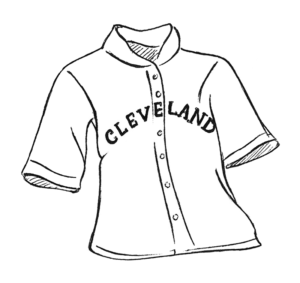
Puerto Rican Aid Continues
Last week, the Federal Emergency Management Agency (FEMA) announced that as of January 31, it would no longer be sending aid to Puerto Rico. Ever since Hurricane Maria devastated the island four months ago, FEMA has provided essential food, water, medicine, and other supplies. In fact, FEMA estimates that it has sent 30 million gallons of drinking water and almost 60 million meals to Puerto Rico since the hurricane.
Many people immediately criticized the agency for this decision, saying that it was too soon to cut off aid. After all, a third of Puerto Ricans still lack electricity, and many places still don’t have running water. But FEMA estimates that only about 1% of residents are still in need of emergency food and water. Plus, FEMA argued, if it continues supplying people with these essentials, it keeps the Puerto Rican economy from being able to improve on its own. (For example, if FEMA provides people with free food, people won’t be going to the supermarket to buy it.)
But many Puerto Rican authorities insisted that it was too soon for FEMA to halt its direct aid, saying that in some communities, as many as 80 percent of residents still lack access to food, water, and other basic needs. Here on the mainland, members of Congress agreed. Both Democrats and Republicans voiced outrage at ending the aid program. As a result, FEMA reversed its decision and announced that it would continue sending food and water to Puerto Rico as long as authorities there expressed a need for it.
What Do You Think? Imagine that you are the director of FEMA. Write a short letter to Congress in which you explain your decision to continue– or end–direct aid to Puerto Rico.
In All of Us, Command?
Canada’s Senate has passed a bill changing the lyrics of its national anthem, “O Canada.” The goal is to make the anthem, which was adopted in 1908, more gender-neutral. Previously, the first few lines of the English version read: “O Canada/Our home and native land!/True patriot love in all thy sons command.” The new version would read: “O Canada/Our home and native land!/True patriot love in all of us command.”
Pressure to change the lyrics to make them more gender-neutral began as early as 1980. Many Canadians, include Prime Minister Justin Trudeau, support the move as an important step toward gender equality. Even so, the bill has faced serious opposition. It passed Canada’s House of Commons in 2016, but spent 18 months under debate in the Senate while the Conservative Party voiced its opposition to the change.
Traditionalists and Conservatives argue that the national anthem, written by Robert Stanley Weir, should be left as it is. But in fact, the original lyric to the 1908 version reads, “True patriot love thou dost in us command.” It was changed to “True patriot love in all thy sons command” in 1914. This is important because it shows that the original version was, in fact, gender neutral.
What Do You Think? In the United States, we face a similar debate over whether or not to remove the phrase “under God” from our Pledge of Allegiance. (The phrase was added at the urging of President Dwight D. Eisenhower in 1954 and was not contained in the original version.) What do you think?
Young MacDonald
Millennials are often characterized by their obsession with technology and communications. We tend to think of millennials as looking for jobs in tech-savvy fields where they can gain access to the most up-to-date discoveries in the digital world. So it may come as a surprise to many people to hear about the latest millennial job trend: farming.
Yes, farming. More and more, young professionals are trading in the busy hustle and bustle of life in the city for a quieter, more peaceful lifestyle, filled with land, a slower pace, and plenty of natural beauty. In fact, for only the second time this century, the number of farmers under 35 years old is actually increasing. This group is also highly educated: roughly 69 percent of farmers under 35 have college degrees, which is much higher than the average for the rest of the population.
When you really think about it, farming isn’t such an odd choice. Millennials may be interested in technology and all things digital, but that is not their only characteristic. Millennials are also huge champions of the environment. They want locally grown, organic foods and healthier choices. They also seek a more active, health-conscious lifestyle, rather than sitting at a desk all day. And they want to make an immediate, positive difference. Farming fits right in with these requirements.
Of course, farming has plenty of drawbacks. For starters, it’s just plain hard work. It also means giving up regular salaries and benefits for an income that’s dependent on the weather. It can also be very expensive to start up, which is especially hard for people facing a lot of student loan debt. But for the millennails who have taken this plunge, the advantages far outweigh the problems.
What Do You Think? Would you ever consider farming as a lifestyle choice? Explain.
Goodbye Chief Wahoo
Last Monday, the Cleveland Indians announced that their players will no longer be wearing the image of Chief Wahoo, the team’s mascot, on their uniforms and caps. This decision came as a result of years of public protest that the logo–a bright red, big-toothed caricature of a Native American– was racist and offensive.

The “Change the Mascot” protest campaign was led by Ray Halbritter, who is a Native American and a member of the Oneida Nation. His group argued that it isn’t right to portray Native Americans disrespectfully as exaggerated cartoon characters, and that professional sports should show respect for other cultures. The first lawsuit to change the logo was brought as far back as 1972. Forty-six years later, Major League Baseball has finally agreed. According to MLB commissioner Rob Manfred, the logo is no longer appropriate to use. The logo will be removed from all on-field caps and uniforms in time for the start of the 2019 season.
Those who would like to see Chief Wahoo retired completely, however, may be disappointed. The logo will still appear on official team merchandise. This means that fans will still wear the logo to games, and that the team will still be able to make money off of what many believe to be a racist image. Also, the team will not be changing its name, which many also feel is offensive. Some fans have expressed anger at the change and vowed to wear even more Chief Wahoo merchandise as a result. It is safe to say that the Chief Wahoo debate is far from over.
